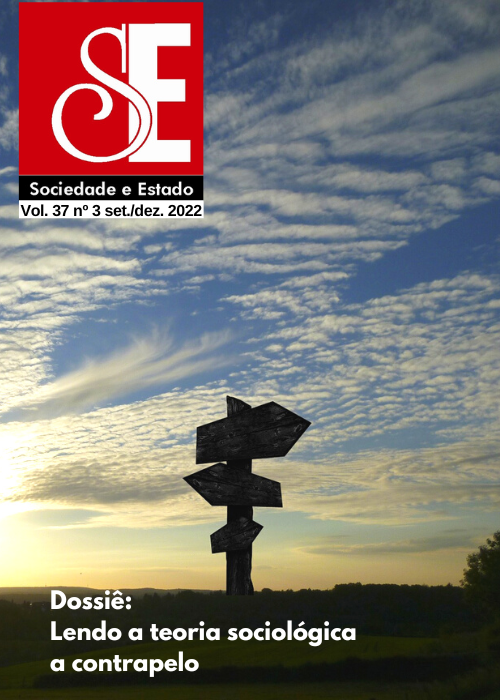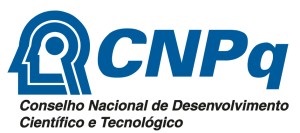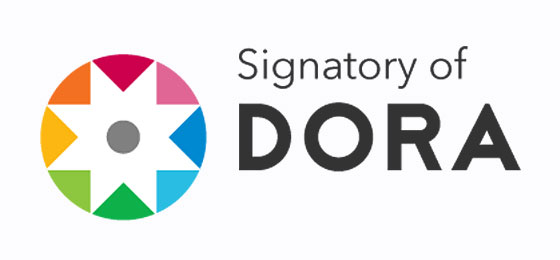Development in Latin America: political economies as a matter of culture
DOI:
https://doi.org/10.1590/s0102-6992-202237030008Keywords:
varieties of development; cultural theory; wicked problems; clumsy solutions; development governanceAbstract
The growing unrest regarding the social, political, economic and environmental state of affairs, both in the global South and North, suggests a deep challenge of the development model. Ideas about development matter because they seek to bring about social states by solving social ills. Therefore, development has traditionally been a solution to problems. However, its definition is being increasingly disputed. So, it has become a problem as well, a wicked one, requiring clumsy solutions. This article makes sense of that plurality and proposes a way to harness it. Applying grid group cultural theory to this debate produces four irreducible ideal-typical worldviews and notions of development: market-led individual prosperity, state-led system-wide welfare, alternatives of community-led equal welfare with ecological conservation, and a mirage.
Downloads
References
ACOSTA, Alberto. Buen vivir sumak kawsay: una oportunidad para imaginar nuevos mundos. Quito: Abya Yala, 2012.
______. El buen vivir en el camino del post-desarrollo Una lectura desde la Constitución de Montecristi, Friedrich Ebert Stiftung. Policy Paper 9, 2010.
-ALTMAN, Yochanan; BARUCH, Yehuda. Cultural theory and organizations: analytical method and cases. Organization Studies, v. 19, n. 1, p. 769-785, 1998.
BELL, Wendy. An anthropological view of how organizations think. Monash University Faculty of Business and Economics, Working Paper 16/97, 1997.
BOAS, Taylor; GANS-MORSE, Jordan. Neoliberalism: from new liberal philosophy to anti-liberal slogan. Studies in Comparative International Development , v. 44, p. 137-161, 2009.
CHAMBERS, Robert. Ideas for development. IDS working paper 238. Sussex, UK: IDS, 2004.
CHANG, Ha-Joon. Bad Samaritans. New York: Bloomsbury, 2008.
______. Kicking away the ladder. London: Anthem, 2003.
CHANG, Ha-Joon; GRABEL, Ilene. Reclaiming development: an alternative economic policy manual. London: Zed Books, 2004.
COYLE, Dennis. The theory that would be king. In: COYLE, Dennis; ELLIS, Richard (Eds.). Politics, policy, and culture, p. 219-239. Boulder, CL: Westview Press, 1994.
DOS SANTOS, Theotonio. The crisis of development theory and the problem of dependence in Latin America. In: BERNSTEIN, Henry (Rd.). Underdevelopment and development: the third world today, p. 57-80. Harmondsworth, UK: Penguin Books, 1973.
DOUGLAS Mary. Thought styles: critical essays on good taste. London: Sage, 1996.
______. Risk and blame: essays in cultural theory. London: Routledge, 1992a.
______. Governability: a question of culture. Millennium: Journal of International Studies, v. 22, n. 3, p. 463-481, 1992b.
______. In the acting voice. Boston, MA: Routledge and Kegan Paul, 1982.
DOUGLAS, Mary; NEY, Steven. Missing persons, a critique of personhood in the social sciences. Berkeley, CA: University of California Press, 1998
ESCOBAR Arturo. “Post-development” as a concept and social practice. In: ZIAI, Aram (Ed.). Exploring post-development: theory and practice, problems and perspectives, p. 18-32. London: Routledge, 2007.
______. Encountering development: the making and unmaking of the Third World.Princeton, MA: Princeton University Press, 1995.
FREEDEN, Michael. Ideologies and political theory: a conceptual approach. Clarendon,UK: Oxford University Press, 1996.
FRITZ, Verena; ROCHA, Alina. Developmental States in the New Millennium: concepts and challenges for a new aid agenda. Development Policy Review, v. 25, n. 5, p. 531-552, 2007.
FURTADO, Celso. Teoría y política del desarrollo económico. Mexico: Siglo Veintiuno Editores, 1974.
GARCÉS-VELÁSTEGUI, Pablo. Varieties of development: on the plurality of development models and how to harness it. forthcoming.
______. Using the capability approach and fuzzy set qualitative comparative analysis in development policy evaluation. Journal of Comparative Policy Analysis: Research and Practice, v. 24, n. 2, p. 179-197, 2022.
______. Of ends and means: development policy assessment with human development and multiple causality. Revista Desarrollo y Sociedad, v. 83, p. 385-412, 2019.
______. Humanizing development: tacking stock of Amartya Sen’s capability approach. Problemas del Desarrollo, v. 51, n. 203, p. 191-212, 2016.
GUDYNAS, Eduardo. Buen vivir: today’s tomorrow. Development, v. 54, n. 4, p. 441-447, 2011.
HOOD, Christopher. The art of the State: culture, rhetoric and public management. Oxford, UK: Oxford University Press, 1998
HOPPE, Robert. Applied cultural theory: tool for policy analysis. In: FISCHER, Frank; MILLER, Gerald; SIDNEY, Mara (Eds.). Handbook of Public Policy Analysis, p. 289-308. London: CRC Press, 2007.
HOPPE, Rob; PETERSE, Aat. Handling frozen fire. Political culture and risk management. Boulder, CL: Westview Press, 1993
KAY, Cristobal. Latin American theories of development and underdevelopment. New York: Routledge, 2011.
KÄSLER, Dirk. Max Weber: an Introduction to his life and work. Oxford,U: Polity Press. 1988.
LOCKHART, Charles. The social construction of cooperation: egalitarian, hierarchical, and individualistic faces of altruism. In: SUN-KI, Chai; SWEDLOW, Brendon (Eds.). Culture and social theory / Aaron Wildavsky, p. 113-131. London: Transaction Publishers, 1998.
MAMADOUH, Virginie. Grid-group cultural theory: an introduction. GeoJournal, v. 47, p. 395-409, 1999.
MCGILLIVRAY, Mark. Human well-being: issues, concepts and measures. In: MCGILLIVRAY, Mark (Ed.). Human well-being: concept and measurement, p. 1-22. New York: Palgrave Macmillan, 2007.
MENA, Ángela; MENESES, Yeison. La filosofía de vivir sabroso. Revista Universidad de Antioquia, v. 337, p. 50-53, 2019.
MUGUMBATE, Jacob; NYANGURU, Andrew. Exploring African philosophy: the value of Ubuntu in social work. African Journal of Social Work, v. 3, n. 1, p. 82-100, 2013.
ONG, Aihwa. Neoliberalism as exception: mutations in citizenship and sovereignty. Durham, UK: Duke University Press, 2006.
PEET, Richard; HARTWICK, Elaine. Theories of development: contentions, arguments, alternatives. 2. ed. New York: The Guildford Press, 2009.
PIERRI, Naina. Historia del concepto de desarrollo sustentable. In: FOLADORI, Guillermo; PIERRI, Naína (Eds.). ¿Sustentabilidad? Desacuerdos sobre el desarrollo sustentable, p. 27-81. Mexico: Universidad Autónoma de Zacatecas-Porrúa, 2000.
PREBISCH, Raúl. El desarrollo económico de la America Latina y algunos de sus principales problemas. El Trimestre Económico, v. 16, n. 63, p. 347-431, 1949.
RAHNEMA, Majid. Towards post-development: searching for signposts, a new language and new paradigms. In: RAHNEMA, Majid; BAWTREE, Victoria (Eds.). The post-development reader, p. 377-403. London: Zed Books, 1997.
RAMOSE, Mogobe. Ubuntu. In: KALLIS, Giorgos (Ed.). Degrowth. A vocabulary for a new era, p. 212-214. New York: Routledge, 2015
______. An African perspective on justice and race. Polylog: Forum for Intercultural Philosophy 3, p. 1-27, 2001.
RIETHOF, Marieke. Labour involvement in national and regional transformation processes: the case of Chile. Third World Quarterly, v. 20, n. 5, p. 1049-1058, 1999.
RITTEL, Horst; WEBER, Melvin. Dilemmas in a general theory of planning. Policy Sciences, v. 4, n. 2, p. 155-169, 1973.
ROSTOW, W. W. The stages of economic growth: a non-communist manifesto. Cambridge, UK: Cambridge University Press, 1960.
SCHMUTZER, Manfred. Ingenium und Individuum: eine sozialwissenschaftlicher Theorie der Wissenschaft und Technik. Wein: Springer-Verlag, 1994.
SCHWARZ, Michiel; THOMPSON, Michael. Divided we stand: redefining politics, technology and social choice. Philadelphia, PA: University of Pennsylvania Press, 1990.
SEERS, Dudley. (1980) The cultural lag in economics” In: PAJESTKA, Jozef; FEINSTEIN, C.H. (Eds). The relevance of economic theories, p. 3-16. London: Macmillan, 1980.
SPENCE, Randy. Economic growth. In: DENEULIN, Severine; SHAHANI, Lila (Eds.). An introduction to the Human development and capability approach: freedom and agency, p. 73-100. London: Earthscan, 2010.
STEGER, Manfred; ROY, Ravi. Neoliberalism: a very short introduction. Oxford, UK: Oxford University Press, 2010.
SUNKEL, Osvaldo. Transnational capitalism and national disintegration in Latin America. Social and Economic Studies, v. 22, n. 1, p. 132-176, 1973.
SWEDLOW, Brendon. Advancing policy theory with cultural theory: an introduction to the special issue. Policy Studies Journal, v. 42, n. 4, p. 465-483, 2014.
THOMPSON, Michael. Cultural theory, climate change and clumsiness. Economic and Political Weekly, v. 38, n. 48, p. 5107-5112, 2003.
THOMPSON, Michael, ELLIS, Richard; WILDAVSKY, Aaron; WILDAVSKY, Mary. Cultural theory. Oxford: Westview Press, 1990.
THOMPSON, Michael; ELLIS, Richard. Introduction: political cultures. In: SUN-KI, Chai; SWEDLOW, Brendon (Eds.). Culture and social theory / Aaron Wildavsky, p. 1-13. London: Transaction Publishers, 1998.
THURBON, Elizabeth. The resurgence of the developmental state: a conceptual defence. Critique internationale, v. 63, n. 2, p. 59-75, 2014.
TORTOSA, José. Sumak Kawsay, Suma Qamaña, Buen Vivir. Madrid: Fundación Carolina, 2009
VERWEIJ, Marco. Clumsy solutions for a wicked world: how to improve global governance. London: Palgrave Macmillan, 2011.
WALSH, Catherine. Development as buen vivir: institutional arrangements and (de)colonial entanglements. Development, v. 53, n. 1, p. 15-21, 2010.
WIILDAVSKY, Aron. Cultural analysis: politics, public law, and administration. Piscataway, NE: Transaction Publishers, 2006.
WITTEK, Rafael; SNIJDERS, Tom; NEE, Victor. Introduction: rational choice social research. In: WITTEK, Rafael; SNIJDERS, Tom; NEE, Victor (Eds.). The handbook of rational choice social research, p. 1-32. Stanford, CA: Stanford University Press, 2013.
Downloads
Published
How to Cite
Issue
Section
License
Copyright (c) 2022 Sociedade e Estado

This work is licensed under a Creative Commons Attribution-NonCommercial 4.0 International License.




.jpg)



















